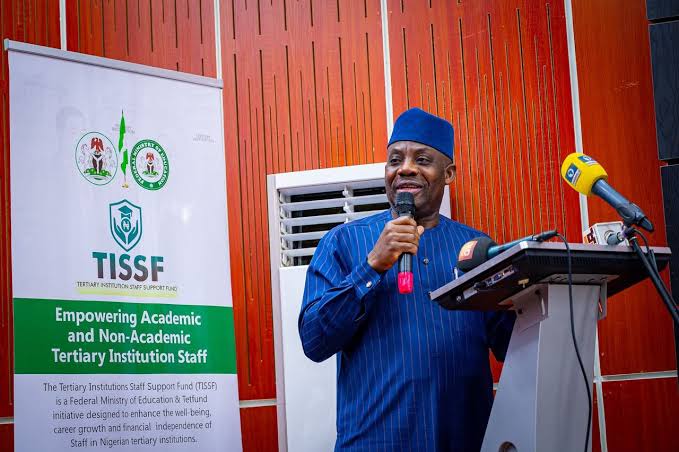
Samuel Omang
The Federal Government has unveiled a revised national curriculum for basic, senior secondary and technical schools, promising to reduce subject overload, improve learning outcomes and better prepare Nigerian students for the demands of a fast-changing world.
The Ministry of Education announced the development in a statement signed by its Director of Press and Public Relations, Boriowo Folasade, and released to journalists on Sunday.
According to the statement, the Minister of State for Education, Prof. Suwaiba Ahmad, presented the revised curriculum in Abuja on behalf of the Minister of Education, Dr. Maruf Alausa.
Ahmad explained that the review was carried out in partnership with major education agencies, including the Nigerian Educational Research and Development Council, the Universal Basic Education Commission, the National Senior Secondary Education Commission and the National Board for Technical Education.
She stressed that the exercise was not limited to trimming subjects but was aimed at strengthening content to ensure deeper learning, more practical knowledge, and reduced academic pressure on learners.
“The revised curricula will reduce content overload and create more learning time for students. The changes reflect the government’s commitment to delivering quality, practical and relevant education in a rapidly changing world,” Ahmad said.
New Subject Structure
Under the revised framework:
Pupils in Primary 1–3 will take 9–10 subjects.
Pupils in Primary 4–6 will take 10–12 subjects.
Junior secondary students may offer 12–14 subjects.
Senior secondary students will take 8–9 subjects.
Technical schools will run 9–11 subjects.
The ministry said the new structure was designed to give pupils more time for practical engagement while also equipping them with relevant skills for the modern economy.
Implementation Timeline
While the rollout date has not been officially fixed, the Ministry noted that the implementation will be phased in, with strict monitoring by relevant agencies to ensure a smooth nationwide transition.
Recall that in early 2024, former Education Minister, Prof. Tahir Mamman, announced that the revised basic education curriculum would commence in January 2025. However, Minister Alausa later postponed the implementation to September 2025, citing the need for wider stakeholder engagement.
Mamman had previously disclosed that under the new system, every pupil at the basic education level would be required to acquire at least two practical skills alongside academic learning.
The Ministry of Education commended stakeholders for their contributions during the review process and assured parents, teachers, and school administrators that the changes will be closely supervised to achieve the intended results.
